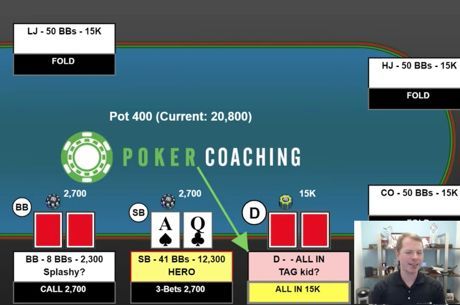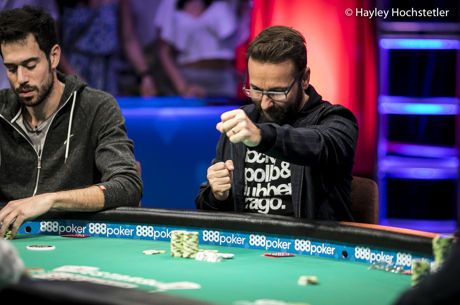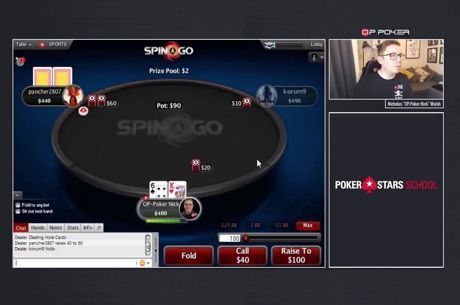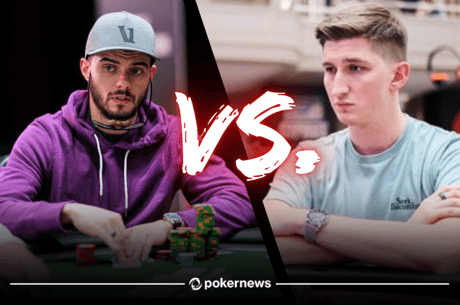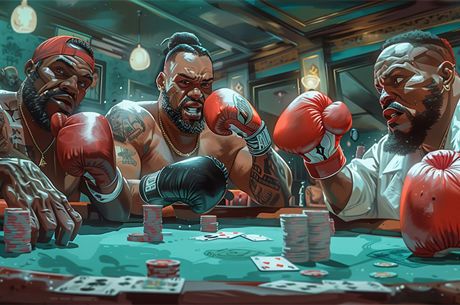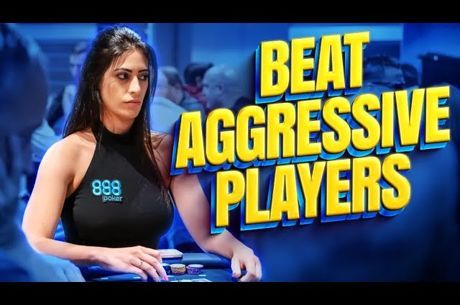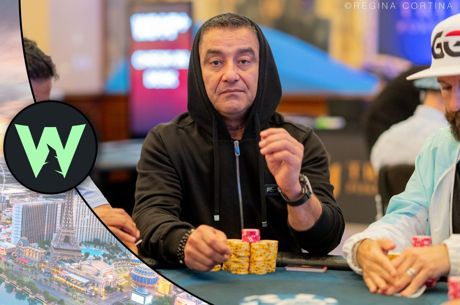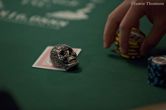Going for Max Value With an Overpair
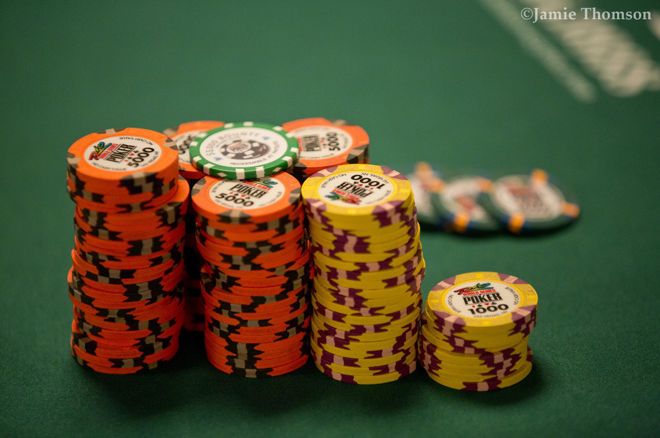
Today I have another fun hand to discuss from a World Series of Poker event, a $1,500 buy-in no-limit hold'em tournament. In this one, I have position and an overpair and when my opponent takes a passive line I respond by going for maximum value.
It was still relatively early (blinds 150/300) when action folded around to a tight-aggressive player in middle position who raised to 700. I looked down at 9♣9♦ in the hijack seat and called, and everyone else folded. We both had about 20,000 to start the hand.
In this situation I'm almost always just calling rather than three-betting, mainly because I don't have any indication this TAG player is going to call my reraise with ace-five offsuit or pocket deuces (or other junk).
The flop came 7♣4♦2♥ and my opponent checked. As I talk about below, this might be the kind of flop on which he should continuation bet with just about his whole range, but he checked and I bet 1,000 into the 2,250 pot. He called and the turn was the 5♦.
I still believe I have the best hand here most of the time, and so I bet again — 2,600 this time — and again he called, bringing the pot up to 9,450.
The river was the 4♣, pairing the board and ensuring my nines remained an overpair. My opponent checked again.
As my headline suggests, I am inclined to fire another bet here. Some players might check behind (fearing a check-raise), but you shouldn't be afraid to make value bets when you likely have the best hand. Take a look and see how things played out after I made my river bet:
Here I unfortunately ran into a part of my opponent's range that had me beat, but that doesn't necessarily mean river value bet was bad. In fact, looking back, the hand could have went much worse for me if my opponent had led with bets.
Jonathan Little is a professional poker player and author with over $6,900,000 in live tournament earnings. He writes a weekly educational blog and hosts a podcast at JonathanLittlePoker.com. Sign up to learn poker from Jonathan for free at PokerCoaching.com. You can follow him on Twitter @JonathanLittle.

